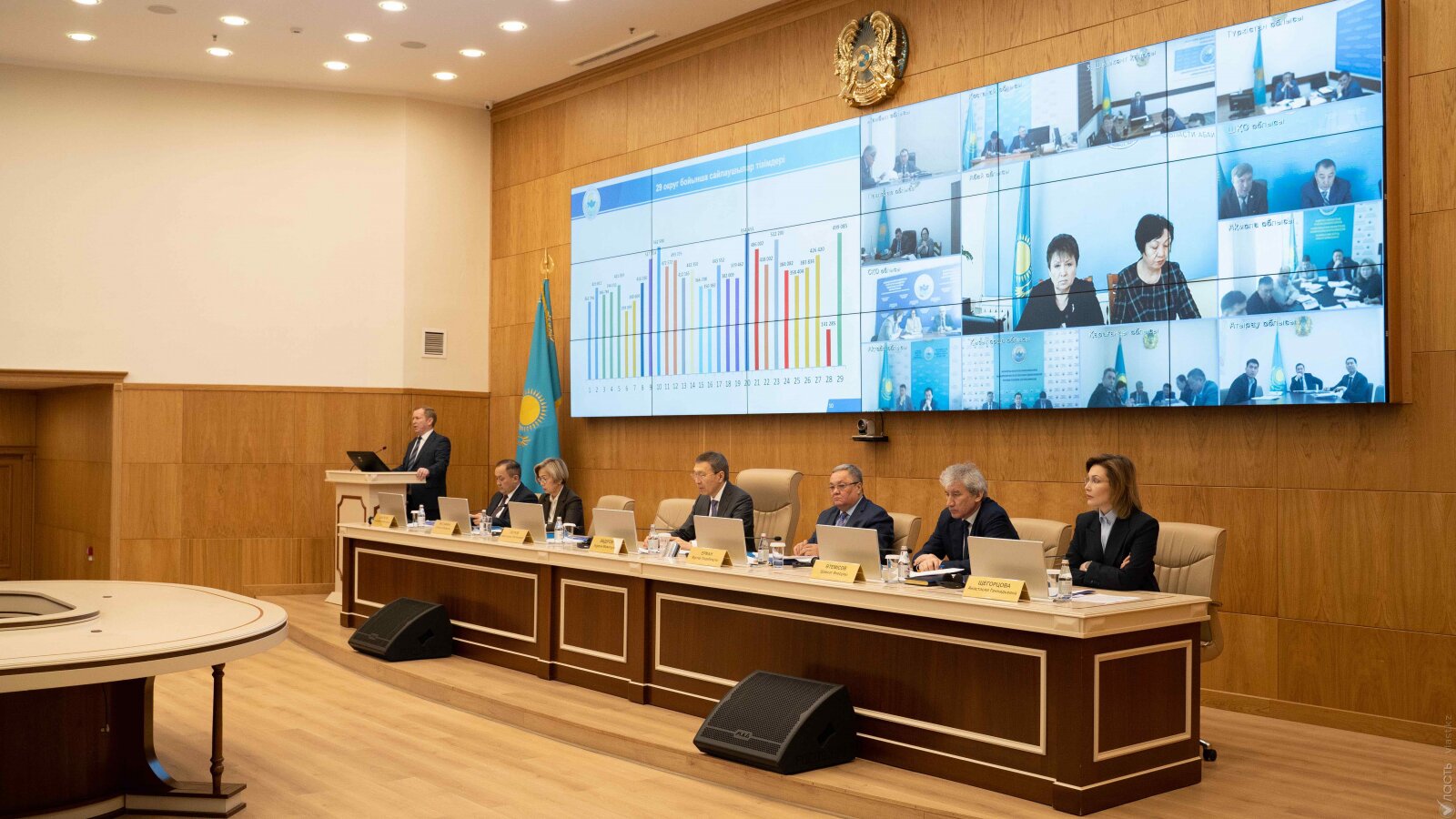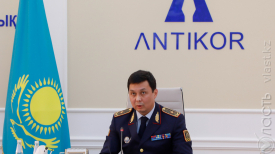- ВКонтакте
- РћРТвЂВВВВВВВВнокласснРСвЂВВВВВВВВРєРСвЂВВВВВВВВ
At the March 19 elections, more than 12 million Kazakhstanis will be presented with up to five colored ballots: for the Majilis election, a blue one for the party lists and a green one for the single-mandate constituency candidates; for the regional and local assemblies, a purple one for the party lists and an orange one for the single-mandate constituency candidates; plus a gray one for voters who can select deputies to the local assemblies in “cities of regional significance”.
The mastermind behind a range of attacks against journalists was arrested, according to a statement by the ministry of internal affairs on February 28. The police said the alleged organizer of the targeted aggressions was a foreign citizen, identified as O. Tokarev, aided by four other foreign citizens. The ministry said that “the purpose of the attacks of the criminal group was to simulate the persecution of representatives of the mass media in order to discredit the President [and his] democratic reforms”. Few members of the local press were convinced by this explanation and observers are expecting more information to emerge during the trials.
A first shipment of 20,000 tons of crude oil was sent to Germany from Kazakhstan via the Druzhba pipeline through Russia on February 27. The amount is symbolic (the linked refinery, Schwedt, processes 10 million tons of crude annually) and shows Germany’s commitment to escape dependency on Russian oil for its refineries. Despite the promise that Kazakhstan will send another 20,000 tons of oil in March, the chances that Kazakhstani oil would substitute in full Russia’s pre-war supplies are slim.
At a meeting with the Council of Entrepreneurs on March 1, prime minister Alikhan Smailov said the government will slash around 800 requirements previously in place to conduct business in the oil and gas sector. Under the guidance of the ministry of energy, Kazakhstan is working to become more attractive to investment in the extractive sector, a strategy that analysts have heavily criticized.
At a cabinet meeting on March 3, the government said it plans to sign an agreement with China on the development of the Trans-Caspian International Transport Route (TITR). Prime minister Smailov said customs procedures should be simplified and the infrastructure should be modernized. Also known as “Middle Corridor”, the TITR represents a plan to foster trade links “from Southeast Asia and China, through Kazakhstan, the Caspian Sea, Azerbaijan, Georgia and further to European countries”.
Costs related to the office of former President Nursultan Nazarbayev weigh on the government budget around 1.5 billion tenge (around $3.4 million), deputy finance minister Dauren Temirbekov said on March 2. Temirbekov also said that in a revised budget for Nazarbayev’s office, the government will save around 130 million tenge ($295,000) this year.
Deputy prime minister and minister of finance Yerulan Zhamaubayev said that, as of March 2, the government did not receive any notifications about the lawsuit concerning the ultimate beneficiary of the holding controlling Jusan Bank that was launched in the US. A court in Almaty initiated in mid-February a civil lawsuit against a group of companies related to Jusan Bank.
A controversial story last Friday showed Kazakhstan falling into a “black list” of countries whose citizens need additional checks during their application process for a Schengen visa. “There are no ‘black lists’ in the Schengen Information System,” the European Union (EU) delegation to Kazakhstan said in a statement on March 1 and will unlikely affect Kazakhstanis’ ability to obtain a visa, a process that experts consider already complicated.
Поддержите журналистику, которой доверяют.








